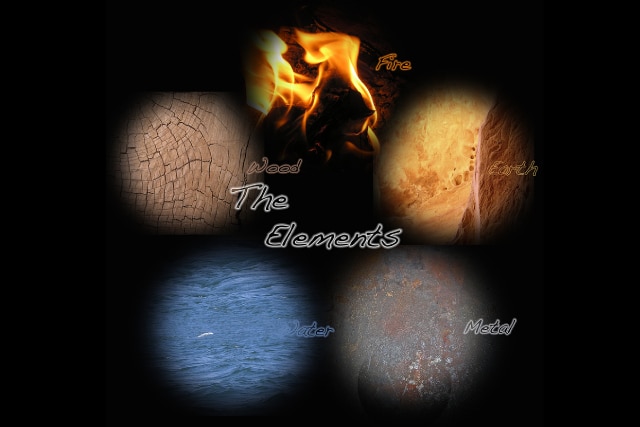The Five Elements in Bazi: What Do They Represent?

Bazi, or the “Four Pillars of Destiny,” is a traditional Chinese system that reveals insights into one’s character, destiny, and potential life path based on birth details. Central to Bazi analysis are the Five Elements—Wood, Fire, Earth, Metal, and Water—which each represent different aspects of energy. These elements interact dynamically within a person’s Bazi chart, shaping various facets of life, from health and relationships to career and finances.
An Introduction to the Five Elements
The Five Elements are fundamental to Chinese metaphysics and philosophy. Each element embodies unique qualities, such as creativity, strength, balance, and adaptability, and each plays a crucial role in Bazi readings. Understanding the balance of these elements in a Bazi chart can help individuals achieve harmony, enhance personal strengths, and minimise challenges.
The process involves analysing the Bazi chart to identify one’s dominant and supporting elements, as well as those that may be in conflict. A Feng Shui master consultant with expertise in Bazi reading in Singapore can offer invaluable insights by interpreting these elemental relationships.
The Role of Each Element in Bazi
Each element represents different qualities and life areas:
1. Wood: Represents growth, creativity, and flexibility. People with a strong Wood element are often creative, resilient, and adaptive, making them ideal for professions in teaching, design, and planning. However, an excess of Wood without proper balance can lead to indecision or over-commitment.
2. Fire: Symbolises passion, energy, and visibility. Those with Fire as their dominant element are natural leaders, often charismatic and enthusiastic. Fire fuels transformation and motivation, beneficial for people in leadership roles or public-facing careers. In excess, however, Fire may lead to impulsive decisions or burnout.
3. Earth: Signifies stability, reliability, and support. A strong Earth element reflects groundedness, making individuals with Earth predominant trustworthy and dependable. Earth is a grounding force, often seen in individuals who excel in management, counselling, or real estate. Overly strong Earth, however, can make one resistant to change or overly cautious.
4. Metal: Associated with precision, integrity, and resilience. People with strong Metal elements value structure, order, and discipline. They may excel in roles that require meticulous attention to detail, such as finance or law. An imbalance of Metal, however, can lead to rigidity or perfectionism.
5. Water: Reflects intuition, intelligence, and adaptability. Water-dominant people are often introspective and insightful, suited for careers in research, writing, or psychology. However, too much Water can lead to fear or hesitancy.
Element Interactions in a Bazi Chart
In Bazi, the elements are not isolated but interact with one another through cycles of creation, control, and conflict. Understanding these interactions can provide a roadmap for navigating life’s challenges. For instance, Water nurtures Wood, suggesting that a person with a Wood deficiency may need supportive Water elements in their environment.
This interconnectedness is also crucial in Feng Shui for business in Singapore, where balancing these energies can align a company’s growth with harmony and sustainability.
Achieving Harmony Through Elemental Balance
Achieving harmony in a Bazi chart involves finding the right balance of elements to support positive life outcomes. Working with a Feng Shui master provides clarity on how to align your physical and energetic environment with your innate elemental energies. This approach is not just about self-awareness but about using Bazi readings as a compass to make informed, beneficial decisions.
Conclusion
The Five Elements are integral to understanding yourself and navigating life’s complexities. By unlocking the meaning of these elements within your Bazi chart, you can gain clarity on your strengths, overcome challenges, and achieve greater balance. If you’re interested in learning more about the Five Elements in Bazi or seeking personalised guidance, consider consulting with Kevin Foong Consulting Group.
Reach out to us today for more information.
